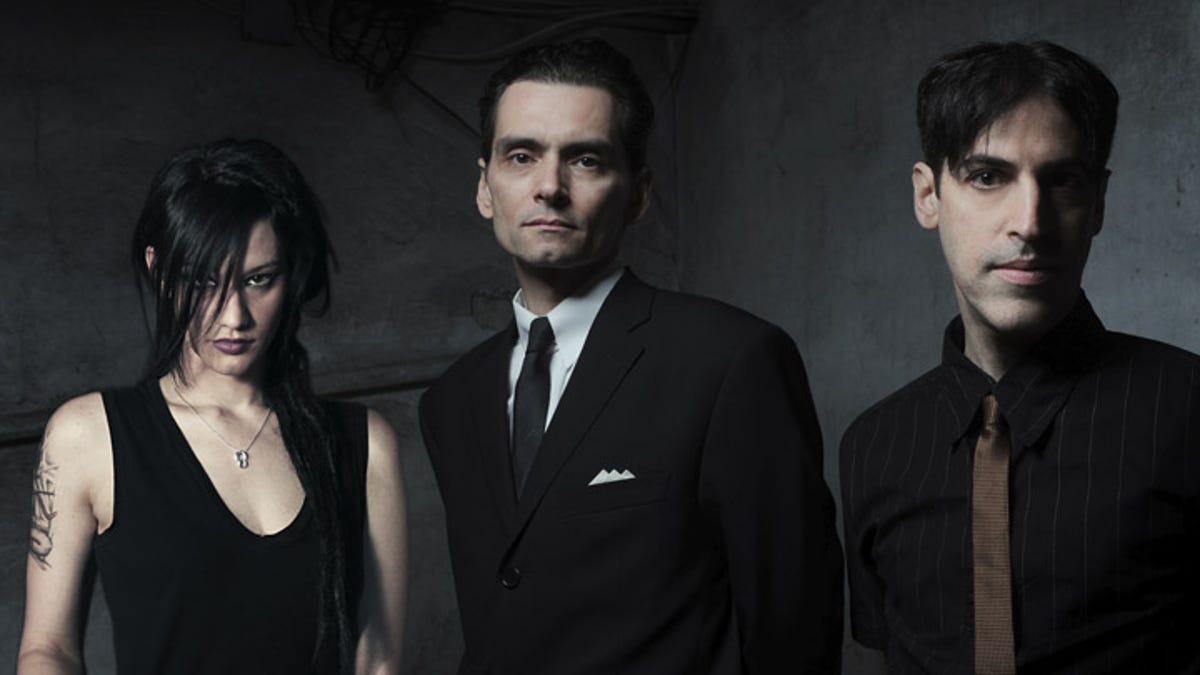Coldplay snub sounds alarm for streaming music
Pundits and analysts say music acts aren't seeing the payout they want from subscription services. Those who defend the likes of Spotify, Rhapsody, and MOG note that it's either them or piracy.

Coldplay and singer Tom Waits last week issued no-confidence votes on subscription music services, or at least that's how the press is interpreting their decision not to distribute their latest albums through companies such as Spotify, Rhapsody, Rdio, and MOG.
On Wednesday, CNET broke the news that Coldplay and Waits will follow other marquee acts, such as Adele and Prince, who have withheld at least part of their catalogs from some of the subscription services. Management for Coldplay and Waits did not respond to interview requests. So, while we don't know for sure why they chose to snub the subscription services, several analysts and members of the media say there's little doubt about the reason.
The subscription services just pay artists too little money say critics and there's also some fears about whether these services, which generate less revenue, eat into sales from more lucrative outlets, such as Apple's iTunes. Coldplay has made its latest album "Mylo Xyloto," available for download on iTunes and Amazon as well as made music videos for each song available at YouTube.
Glenn Peoples at Billboard wrote that Coldplay is apparently trying to push fans into paying for downloads or CDs. "By keeping the album away from on-demand services," Peoples wrote, "Coldplay is ensuring fans will buy (or find other ways to obtain the music) rather than listen for free."
Spotify, Rdio, and MOG charge users a monthly price to access large pools of songs but they also offer a limited amount of music free of charge.
Rolling Stone magazine tried to compare the amounts of money that artists see from each type of distribution. The magazine said an artist may receive 19 cents for every 60 times a song is played. The magazine cautioned that licensing deals will differ between acts as well as between subscription services. The payout for a downloaded song at iTunes that costs $1.29 is much easier to pinpoint: the label gets 60 cents, Apple 40 cents, the artist 20 cents, and the songwriter 9 cents.
The perception that streaming services aren't lucrative for artists has been around for awhile, but it continues to dog the sector, and losing a band with the notoriety of Coldplay won't help.
These services, which stream songs over the Internet to users' mobile phones, PCs, or digital music players, have only been building momentum in the last year thanks in large part to the buzz generated by Spotify. The service took Europe music listeners by storm and after years of failed attempts to license music in the United States, finally launched operations here in July.
"Artists can--and do--receive very substantial revenues from Spotify," the company said in a statement. "And as we grow, these revenue streams will naturally continue to grow."
In that same Rolling Stone article, Jim Guerinot, manager of Nine Inch Nails and No Doubt, suggested subscription services could have a bright future. "Is it big money?," Guerinot said, "I think it could be."
Cannibalizing sales?
Spotify was once considered a threat to music sales. Critics argued that the amount of free music the company gave away cannibalized download and CD sales. The labels weren't happy with Spotify's ability to convert users of the company's free service into users of the subscription plan. That held up Spotify's move to the U.S., but the company agreed to dramatically limit the amount of free music it offers.
The labels are now big boosters of Spotify and the other subscription services. I was told by one music industry source that the labels aren't seeing any cannibalization for one important reason: buyers of downloads and those who obtain music from subscription services are two very separate customers.
CD and download buyers typically have more disposable income and are a little older. The subscription service customer is likely a teen or twentysomething consumer that may have in the past obtained music from illegal file-sharing sites.
"We're cannibalizing piracy," said John Irwin, president of Rhapsody, a subscription service that's been around for a decade. "That's the question we should be asking. If we don't offer subscription services to some of these music consumers, where are they going to and get their music?"
Companies like Rhapsody and Spotify have helped antipiracy efforts, according to multiple music label sources.
Irwin said that artists have the right to choose how they want to distribute and he respects that, but he also said that subscription services are just now gathering steam. He suggests that because of the piracy issue and the inability so far for the music industry to find real competition for iTunes, artists should give the sector some time to develop.
• Coldplay latest act to freeze out streaming services (scoop)
• Pandora spurs music sales; Spotify not so much
• Rhapsody to acquire Napster (scoop)
The obvious question then is how much time does the sector need? Rhapsody has been around for a decade. Spotify was founded in 2008. The criticism is that Spotify's payouts to artists have always been miniscule. Some acts say they've seen enough.
Sam Rosenthal, a member of the dark-rock band "Black Tape For A Blue Girl," and owner of the New York indie label Projekt, told CNET he removed all his label's music from the streaming services back in July.
"What they pay just doesn't support the idea that art has value," said Rosenthal, 43, who added that Spotify paid him a little more than a tenth of a penny for every song play. He said that if his songs were played a total of 5,000 times, he would receive $6.50. He said that 892,000 spins would pay him the equivalent of minimum wage for a month.
He's sticking with iTunes, he added.

